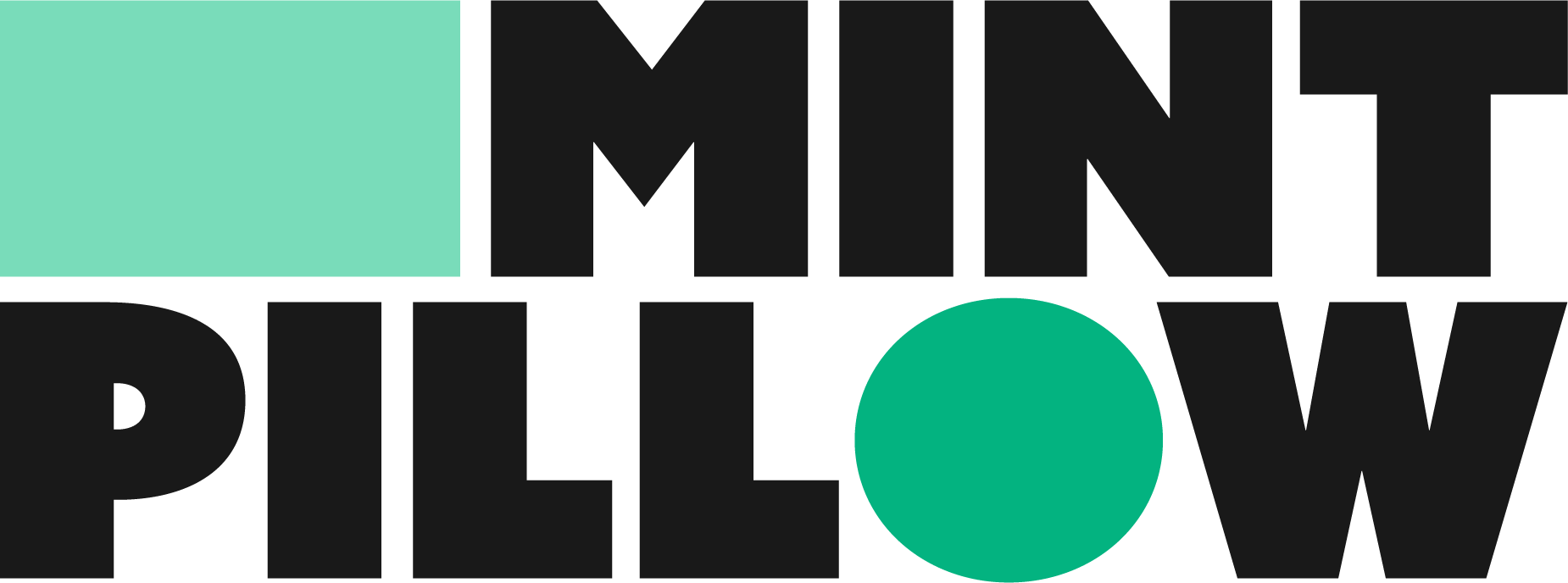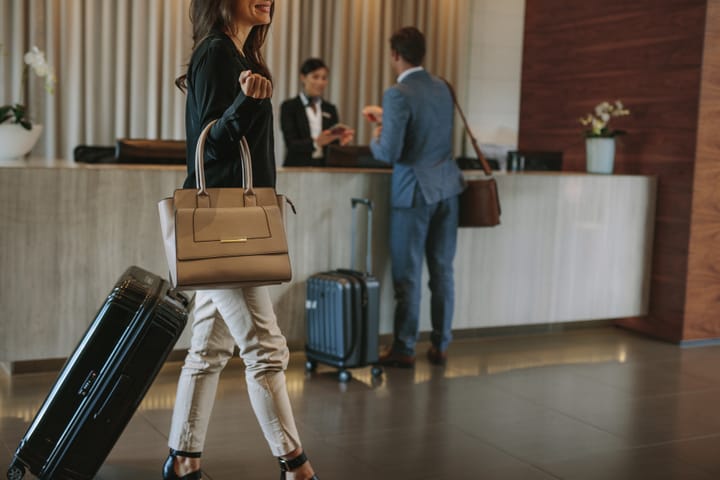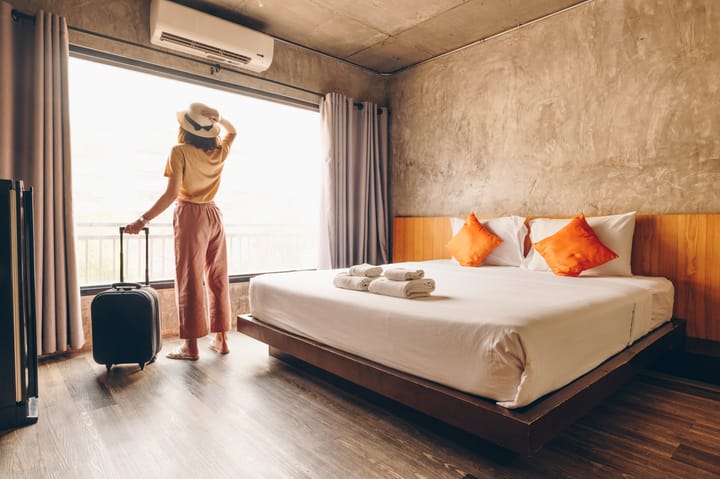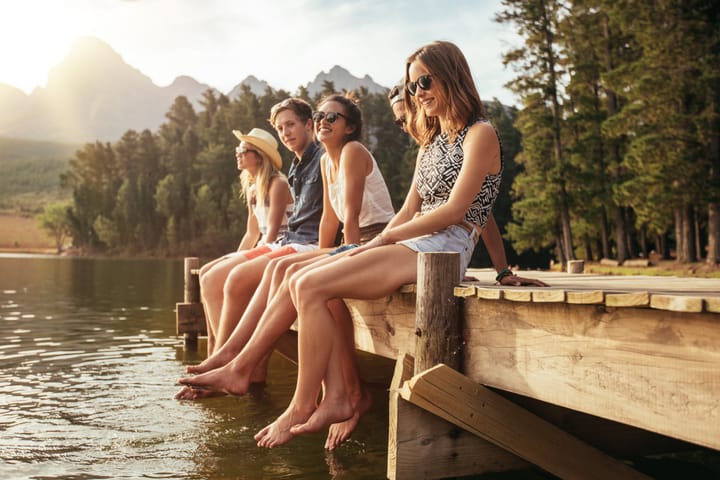Inside hospitality’s new non-alc frontier
Plus: Your pillows hold sway over guest satisfaction
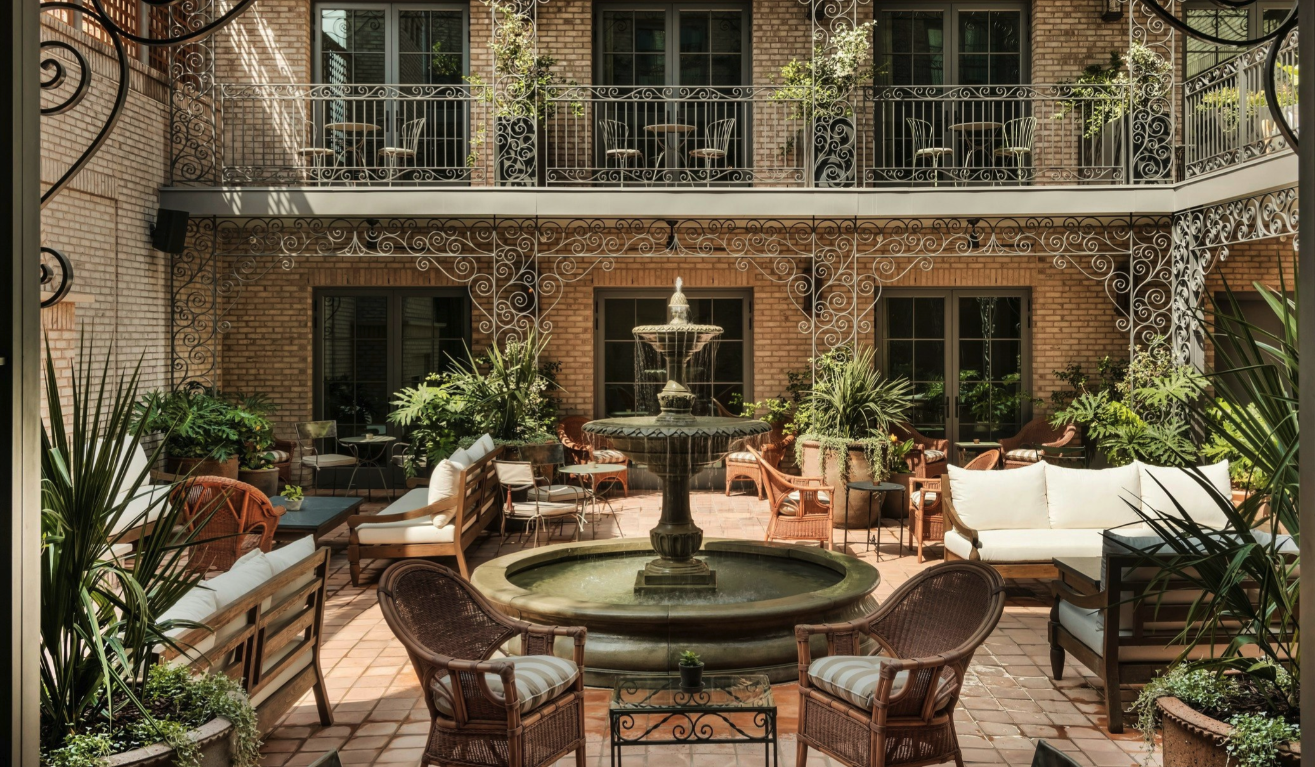
From boardrooms to bedrooms, office conversions are on the rise and we’re here for it. We’re also sharing an invitation to peek into the future (hello, 2075!) to dream up hotel rooms that are more sci-fi than suite. And finally, a gentle nudge to slow your roll: making big calls too fast can lead to expensive detours. Let’s unpack how strategic thinking leads to smarter hospitality moves.

Pillow talk. The National Sleep Foundation says 91% of travelers rank a comfortable bed and pillow as the most important part of their stay. If your guests wake up feeling as if they’ve rested their head on a sack of potatoes, their review of your hotel will show you that pillows hold sway over guest satisfaction.
You are what you eat. What if well-being wasn’t just a buzzword, but the secret ingredient to lasting success in hospitality F&B? The "2025 EHL Hospitality Business School Food and Well-Being" report identified six major trends, dishing up fresh insights on weaving wellness into your food strategy.
No one wants to work in an office anyway. Office conversions are picking up steam, says Yardi Matrix’s June 2025 "U.S. Office Market Outlook" report—and CBRE adds that 68 projects totaling 12.8 million square feet are set to wrap this year in the U.S. Makes you wonder: how many of those could be the next great boutique hotel?
Thinking ahead. Channel View Publications is calling for chapter abstracts for its "Future of Tourism" series—this time diving into the hotel bedroom as a transformative (and potentially transformed) space. Fast forward to 2075… maybe hotel rooms will make our coffee, curate our dreams and stream our memories.
Upward mobility. Revenue Analytics acquired revenue management software company Climber, trusted by boutique and independent hotels in Europe, the Americas and Brazil. The move follows the company's strategy to expand its product offerings and expedite international growth.

‘Too often, the non-alc offering feels like an afterthought—or worse, an obligation’
As more travelers embrace wellness-focused lifestyles, the demand for sophisticated, non-alcoholic options is climbing. Victoria Watters, co-founder of Dry Atlas, a media company focused on alcohol alternatives, is at the forefront of the movement championing elevated alcohol-free experiences.
Wondering how your hotel can support sober and sober-curious travelers? She shares her insights on what guests are really looking for and why thoughtful beverage programming is becoming a key part of the modern hospitality playbook. —Jennifer Glatt
What are some common myths about the non-alc lifestyle, and how is Dry Atlas helping shift the narrative?
One big myth is that it’s all or nothing. In fact, 93% of non-alc spirit, wine and beer consumers also consume alcohol. Consumers will often switch between alc and non-alc beverages, even within the same drinking occasion. So, for hotels, providing a range of options is key to maximizing revenue.
At Dry Atlas, we’re helping shift the narrative by treating alcohol alternatives as a category worthy of serious consideration. We track industry trends, write about new products with depth and context, and help decision makers across hospitality, retail and the broader beverage industry better understand how to respond to this wave of non-alc interest.
Is the rise in non-alc interest more about wellness, lifestyle, inclusivity—or a bit of everything?
That’s another myth: that non-alc consumers are all on a health kick. Some consumers are certainly driven by health goals—mental clarity, better sleep, hormone balance, etc. But while wellness drives a lot of interest in the category, the real landscape is more nuanced.
Some consumers are rethinking what socializing needs to look like. For others, alcohol alternatives simply provide an exciting set of new flavors to explore. Not everything in this category replicates traditional alcoholic drinks. In fact, novel formulations are on the rise, and boutique brands with unique, complex flavor profiles—with no alcohol reference points—are gaining traction.
How can hotels move beyond just a token mocktail to create a better non-alc experience?
Step one is recognizing that non-alc guests aren’t looking for a sugar bomb in a fancy glass! They want complexity and intention. I recommend that hotels go beyond simply in-house concoctions and start incorporating non-alc spirits, aperitifs, wine alternatives, etc. on their menus. They also command a much higher price point.
Where do you see hotels missing the mark with sober or sober-curious guests?
Too often, the non-alc offering feels like an afterthought—or worse, an obligation. A $600-a-night hotel with just a Shirley Temple on the menu sends a message: “We didn’t think of you.” That’s not just bad hospitality. It’s a missed revenue opportunity.
Hotels also miss the mark by assuming non-alc is a temporary or seasonal fad. The sober-curious crowd isn’t just looking for Dry January perks. They’re looking for year-round hospitality that meets them where they are.
What non-alc trends should hotels be paying attention to right now?
Three big ones:
Premiumization—Guests now expect the same craft, care and price point in a non-alc cocktail as they do in an alcoholic one. Quality matters more than ever.
Functional ingredients—Think adaptogens, nootropics [substances that enhance cognitive functions such as memory, focus and attention] and botanicals. Some non-alc consumers are looking for their beverages to make them “feel something.”
Non-alc wine and beer upgrades—These categories have quietly leveled up. Hotels that curate great by-the-glass options will stand out.
Ultimately, hotels should view non-alc not as a box to check, but as a new frontier for hospitality. The demand is real and growing.

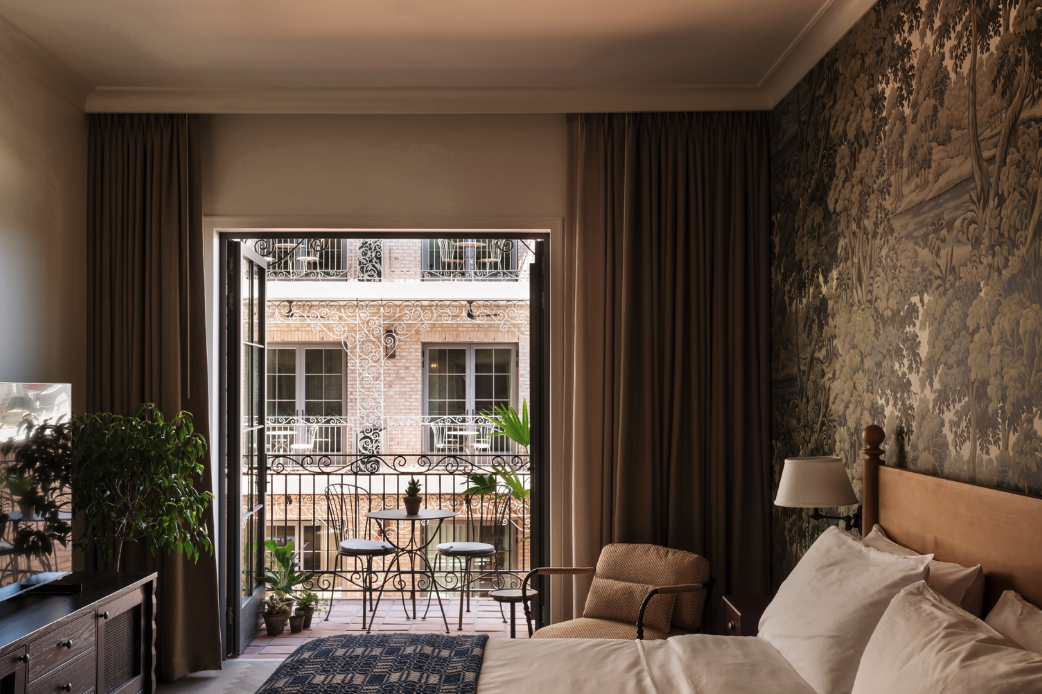
Porch perfect
The Nickel Hotel brings a fresh twist to Charleston, S.C., where vintage elegance meets modern comfort in a boutique space made for lingering. Peek inside this design-forward stay that’s showing (with serious style) what it means to feel at home on the road.
Why it matters: The five-story, 50-key Nickel Hotel offers a compelling blueprint for charming guests with character and comfort. It nails the balance between old-school Charleston style—hello, checkerboard floors and wrought-iron balconies—and modern must-haves like full kitchens, laundry and laid-back lounge areas perfect for longer stays. With hangout spots like a courtyard and a rooftop bar, it creates those “I could live here” vibes that travelers love. Its location in Charleston’s buzzy Cannonborough neighborhood also puts guests mere steps from coffee, cocktails and culture. Bottom line? The hotel blends local soul with smart design—the perfect recipe to turn a boutique stay into a buzzworthy success. (Design Milk)
Above: The Nickel Hotel (Courtesy The Nickel Hotel/Matthew Williams)

Tell us something we don't know
HotStats’ recent numbers dive reveals that while U.S. hotels are seeing nominal YoY growth in revenue (TRevPAR), gross operating profit (GOPPAR) and payroll per available room (PayPAR), those gains are being eaten away by inflation and soaring labor costs, leaving real profitability still lagging behind 2019.
Why it matters: U.S. hotels may be raking in more dollars than a few years ago, but adjusted for inflation, those gains aren’t quite what they seem. When stacked against rising costs, many properties are still earning less than they did pre-pandemic.
"Margins are getting squeezed on both ends. You can't raise rates fast enough to outpace inflation." —Laura Resco, HotStats' Director for Hospitality Intelligence, Americas
HotStats posits that data from April 2025 underscores a recurring truth in post-pandemic hospitality: nominal growth does not equal real recovery. (HotStats)

The shifting sands of search
Cloudbeds just dropped the first global study on how AI platforms like ChatGPT, Perplexity and Gemini choose and recommend hotels, revealing the hidden “signals” that boost visibility. Stay ahead of the curve by brushing up on your Generative Engine Optimization (GEO) skills and learn what AI looks for before guests even make a booking.
Why it matters: AI is rapidly reshaping how travelers discover and book stays—no more endless scrolling, just one top recommendation from a smart (unpaid) assistant. By analyzing 145 consistently top-ranked properties across six global markets, Cloudbeds identified five essential strategies that hotels need to land top billing. With over half of all AI citations coming from OTAs like Booking.com, Expedia and TripAdvisor, know this: distribution networks hold the keys to visibility. (Cloudbeds)

Avoid chaos with clarity
Big decisions made too fast often miss the mark—and hotel leaders aren’t immune. This read unpacks why slowing down your thinking can actually speed up your results.
Why it matters: In an industry driven by details and experience, hotel leaders often find themselves in constant problem-solving mode. But true progress comes from those who pause to ask better questions—what’s really broken, what haven’t we tried and how does this connect to the bigger picture? This approach helps hotels avoid wasting time and resources solving the wrong problems. Whether you're refining your pricing model, streamlining service delivery or managing labor, strategic thinking can help you move with clarity, not just speed. (LinkedIn)
Thanks for reading today's edition! You can reach the newsletter team at newsletter@mintpillow.co. We enjoy hearing from you.
Interested in advertising? Email us at newslettersales@mvfglobal.com
Mint Pillow is curated and written by Jennifer Glatt and edited by Lesley McKenzie.
